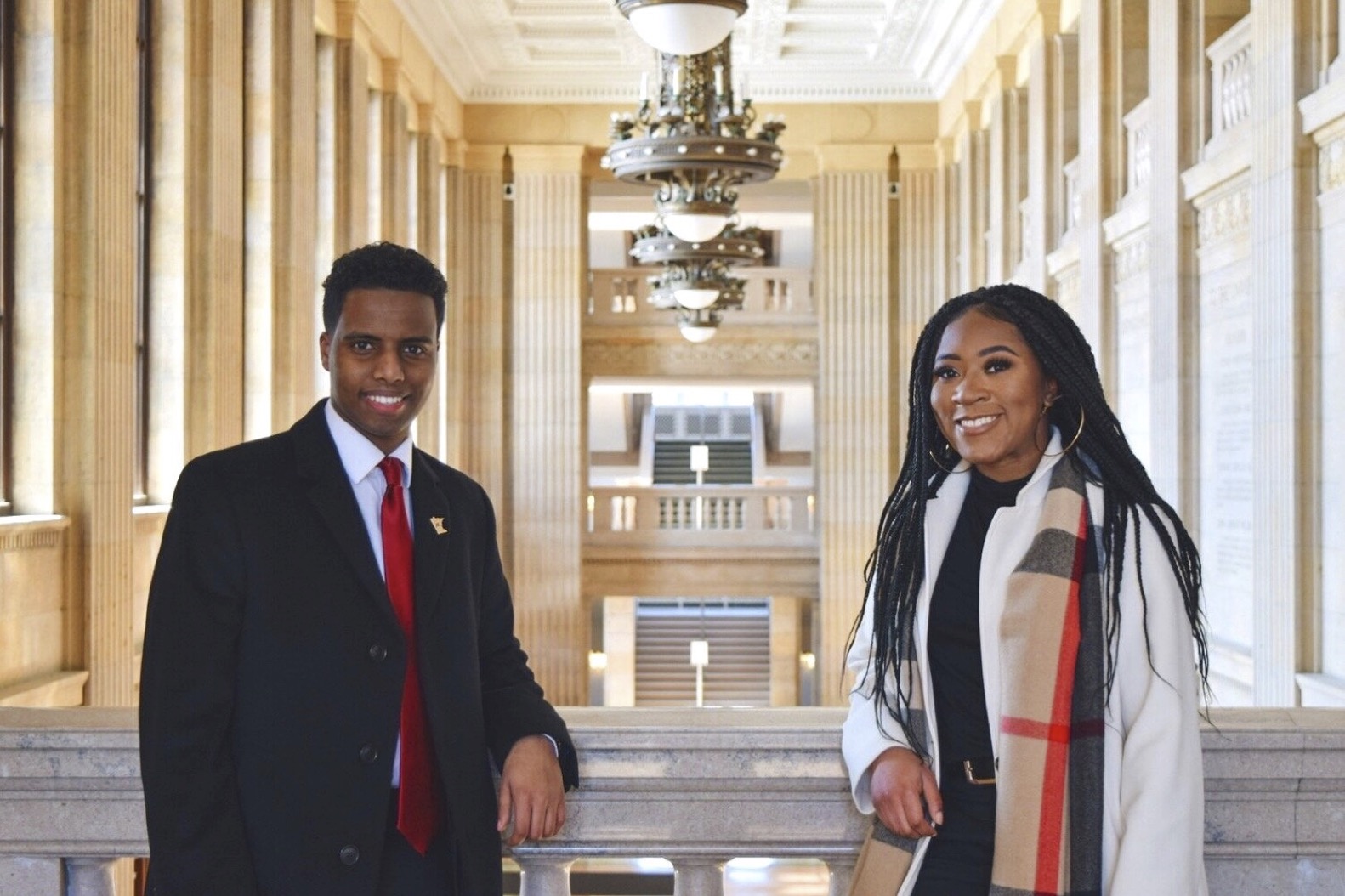Abdulaziz Mohamed and Samiat Ajibola, the first Black president and vice president duo for MSA, work toward centering student voices and holding the University accountable.
By Samantha De Leon
The University of Minnesota 2021 campus elections results are in: Abdulaziz Mohamed and Samiat Ajibola, who ran for undergraduate body president and vice president, won the Minnesota Student Association (MSA) elections on March 29.
Mohamed and Ajibola’s election is a decidedly new narrative of student leadership for MSA: they are the first Black president and vice president duo to run for and win the positions. They will step into office following the nearby killings of George Floyd and, very recently, Daunte Wright, which have brought protest and demand for change everywhere, including the University.
“I think a change in progress happens when narratives shift,” Mohamed said. “When we talk about this institution, the administration and Board of Regents, they have had a narrative of comfortability and complacency.”
The new leaders are working to transition into action their campaign platforms of University of Minnesota Police Department (UMPD) accountability, food and housing insecurities and student mental health.
“We didn’t write these platforms just to get elected, we wrote these platforms to better the lives of students at this University,” Ajibola said. She said a great deal of their work has been creating a foundation for next year to ensure they can begin work when they take office on July 1.
Mohamed said many of the issues they highlighted were personal and came from their own experience as student leaders, as well as the student stories they have encountered during their time at the University. He said the two of them as leaders want to “fundamentally shift this institution’s narrative” by telling student stories and creating a more equitable and inclusive campus for students.
Mohamed, a second-year student majoring in political science with minors in business law and African American and African Studies, currently serves as the Student Unions and Activities grants committee member, a project assistant for the Gopher Equity Project and is a federal government and legislative affairs coordinator with MSA.
Although mindful that he and Ajibola have made history with their election, Mohamed acknowledges the recent leadership gains by Black students and others at the University. Jael Kerandi served as the first Black undergraduate student body vice president in 2019-2020 before transitioning to student body president in MSA in the same year. Mike Kenyanya became the first Black member of the Board of Regents in 2019.
What compelled him to run was partly seeing those leaders emerge, Kenyanya said. “That was the impetus of why I wanted to run — to be able to have the best leadership reflected when it comes to having a diverse set of leaders,” he said.
But Mohamed said MSA could improve at diversifying its leadership overall. “MSA needs to be doing a better job of outreaching and having more student involvement from different backgrounds, majors and identities,” Mohamed said. Over the next year, he and Ajibola want to use their platform to have an MSA that’s more reflective of the student body.
“It’s not lost on us, the historic nature of us being the first Black tickets,” Mohamed said. “I feel like that’s a testament to the kind of phrase, you can be when you can’t see.”
Samiat Ajibola is a third-year student majoring in sociology, policy analysis and public health. She is the president of the Black Student Union, an ambassador for the undergraduate public health association and liaison of the African Student Association.
Ajibola said she found it saddening that they will be the first Black president and vice president in the school’s 150-year history. She said it’s an honor, but it has been a long time coming.
“We’re not really here to be a token of what could be… but to be the leaders that we are,” she said. “And ensure that we’re showing support to everyone and specifically highlighting the voice of those who are not heard.”
Mohamed said that he and Ajibola will continue to develop connections with student groups throughout the next year. “As things go back to being in person next year, we’ll be able to build those relationships that we really want to build and not be in a virtual space,” Ajibola said.
They know there is an urgency for change among students on campus.
“We’re committed to keeping the promises we made in making sure that this University works better for students,” Mohamed said.

